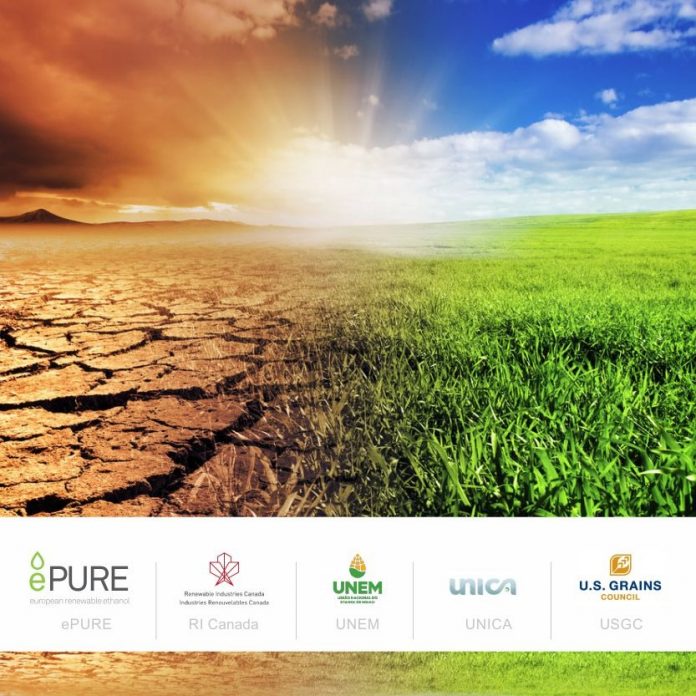In an intentional commitment to support the global fight against climate change, the U.S. Grains Council (USGC), Renewable Industries Canada (RICanada), UNICA (Brazilian Sugarcane and Bioenergy Industry Association), UNEM (National Corn Ethanol Union) and ePURE (European Renewable Ethanol Association) have come together today to underscore the importance of sustainable crop-based biofuels, such as renewable ethanol.
The leaders of each organization issued a joint statement, declaring:
As the world’s leading ethanol associations representing producers across the globe, we are unified in our efforts to support the global energy transition and reduce greenhouse gas (GHG) emissions. Renewable ethanol’s benefits to the environment, energy security, and human health, underscores its essential role in global efforts to reach net zero by 2050 and beyond.
As countries seek to achieve their Paris Agreement commitments, the use and implementation of renewable ethanol can offer immediate reductions of GHG emissions within the on-road transportation sector. Moreover, technological advancements and the adoption of more sustainable farming practices continue to lower ethanol’s overall carbon intensity score while further increasing production, making ethanol the most effective and readily available renewable transportation fuel.
Numerous factors including rising oil prices and the war in Ukraine have driven the cost of energy to historic highs, forcing countries to balance the need to cut their GHG emissions at the expense of achieving energy security and stabilizing fuel prices.
Ethanol-blended fuels historically lower gasoline prices while reducing reliance on foreign oil and improving the supply of energy. Ethanol also broadens job opportunities in the agricultural, energy and transportation sectors, opening areas for countries to enhance climate cooperation and bolster positive trade relations.
Renewable ethanol production also contributes to food and feed production, as well as supporting the economic viability of farmers around the world. Ethanol’s abundance and affordability make it a clear choice for countries that seek solutions to current energy security and inflationary economic factors.
Fuels blended with ethanol are proven to decrease harmful air pollutants that contribute to negative health effects. Ethanol’s ability to be used directly in current global vehicle fleets and existing fueling infrastructure, make it an immediate and practical solution for countries seeking to improve air quality and human health.
Ethanol is also a critical partner in decarbonizing hard to electrify sectors such as the aviation industry. As the demand for low carbon, sustainably produced feedstock continues to rise, the aviation sector can utilize biofuels such as renewable ethanol to produce sustainable aviation fuels (SAF), demonstrating ethanol’s role as a future facing renewable liquid fuel.
Our organizations remain committed to building a sustainable future and believe that widely available renewable ethanol serves as an immediate affordable and effective answer to present and future environmental, energy security and human health challenges. While our organizations work across a range of sustainably grown feedstocks, with regional characteristics and specific production models, we understand that tackling climate change demands an all-of-the-above approach and that crop-based biofuels such as renewable ethanol are vital to decarbonize the transportation sector and help countries reach net zero by 2050 or sooner












